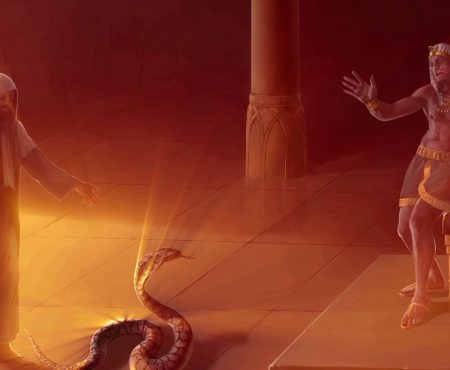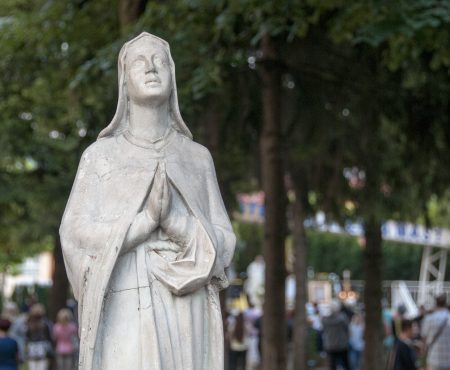Who is Jesus in Islam?
Many Christians are utterly surprised when hearing how highly regarded Jesus is in Islam. In fact, despite the many differences that naturally exist in the different accounts on the life of Jesus Christ, Christianity and Islam still share many of the same narratives on his life. Regardless of the differences, however, the Islamic narrative has still drawn the interest of many due to the highly dignified manner in which it speaks about Jesus, the son of Mary. A brief look at Islamic teachings, drawn directly from the Quran (Islam’s holy book) and narrations of The Prophet Muhammad (PBUH), can offer the reader a glimpse into how Jesus is viewed by Muslims.
Jesus, referred to in the Quran as “Isa bin Maryam” (Jesus, the son of Mary), is mentioned a total of 25 times by name, while the Prophet Muhammad is mentioned by name only five times. Islam recognizes Jesus as Messiah, a Word from Allah, born to the Virgin Mary (Maryam in Islam), and reinforced by the Holy Spirit. His teachings were essentially centered on belief in one, unique God and worshiping no other deity but Him, while also preaching about peace and love. Muslims also believe that he performed a variety of miracles since his time in the cradle from dispatching revelation to humanity as a continuation of previous scriptures, healing the diseased, curing the blind, and bringing the dead back to life, all through Allah’s will. As evident in the following verse, despite the numerous miracles that Jesus performed, he never took credit for them and always indicated that it was by the will of Allah:
“Truly I have brought you a sign from your Lord. I will create for you out of clay the shape of a bird. Then I will breathe into it, and it will be a bird by God’s Leave. And I will heal the blind and the leper and give life to the dead by God’s Leave. And I will inform you about what you eat and what you store up in your houses. Truly in that is a sign for you, if you are believers.” (3:49)
Although Muslims acknowledge the various miracles Jesus was able to perform, many of which are not mentioned in The New Testament, Islam does not believe in the divinity of Jesus. The Quran quotes Jesus as telling the children of Israel:
“I have come to you with a sign from your Lord, so fear Allah and obey me. Indeed, Allah is my Lord and your Lord, so worship Him. That is the straight path.” (3:48-49)
He is also viewed as a Prophet of God and not the son of God. As the Holy Quran states, “It is not consonant with the majesty of (Allah) Most Gracious that He should beget a son” (19:92), and, “He (Allah) begets not, nor is He begotten” (112:3). Interestingly enough, in the New Testament, Jesus describes himself as “son of man” 88 times, while “son of God” is mentioned 47 times, but always by others.
Despite Jesus being referred to as “The Word of God” in Christianity, Islam considers him “A Word of God”.
“Behold! The angels said: ‘O Mary! Allah gives you glad tidings of a Word from Him: his name will be Christ Jesus, the son of Mary, held in honor in this world and the Hereafter and of (the company of) those nearest to Allah; He shall speak to the people in childhood and in maturity. And he shall be (of the company) of the righteous.’” The Quran (3:45-46)
Many scholars have interpreted “a Word from Allah” to be defined as Jesus being a means by which God’s word was expressed throughout the world. Others have interpreted the phrase to refer to Allah commanding things into existence by the use of a word – the word “kun” in Arabic, meaning “be”. The general principle in Islam is that Allah creates things by simply willing them into existence. Just as He willed everything else into existence from subatomic particles to the universe itself, Jesus was also created through Allah’s divine command, “Be”. As referenced in the Quran (3:47), when Mary asks, “My Lord, how will I have a child when no man has touched me?” The angel replies, “Such is Allah; He creates what He wills. When He decrees a matter, He only says to it, ‘Be,’ and it is.”
While some may refer to the miraculous birth of Jesus and the absence of a father in his birth as evidence of him being the son of God, the Quran compares his birth to that of Adam’s, who was born without a father or a mother: “Indeed, the example of Jesus to Allah is like that of Adam. He created Him from dust; then He said to him, “Be,” and he was.” (3:59)
While many hold the belief that Jesus died through crucifixion, the idea is rejected by Muslims as they believe that he is still alive. According to Islam, Allah had raised Jesus into the heavens at the end of his prophetic mission in order to save him from being persecuted by the people, putting another person to be crucified in place of him. In Islam, Muslims also believe that Jesus will one day return in order to annihilate the antichrist, and put an end to the eccentric beliefs and traditions in the world’s religions, including correcting those who claim to be his followers, but who have diverted from the right path. He will then guide the people of the world into submitting to God’s will (the very definition of Islam) and continue living his life until his natural demise.
“And [for] their saying, ‘Indeed, we have killed the Messiah, Jesus, the son of Mary, the messenger of Allah.’ And they did not kill him, nor did they crucify him; but [another] was made to resemble him to them. And indeed, those who differ over it are in doubt about it. They have no knowledge of it except the following of assumption. And they did not kill him, for certain. Rather, Allah raised him to Himself. And ever is Allah Exalted in Might and Wise.” (4:157-158)
Although the above verse addresses the belief in the crucifixion and death of Jesus in Islam, it is worth noting that the verse is not a critique of Christian belief, rather it is aimed at those who claimed to have killed him.
You can also take a look at our Biblical Figures, Islamic Narrative video about Jesus in Islam:
https://www.haqnetwork.com/video/how-is-jesus-depicted-in-islam/






Tous les commentaires (0)